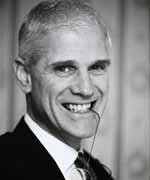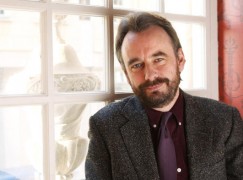Peter Jonas: ENO must live. The Arts Council should die.
mainSir Peter Jonas, a former artistic chief of English National Opera, has been alarmed at the crisis at his former company. In an essay for Slipped Disc, he springs passionately to support the embattled John Berry and argues that the state funding organisation has ‘outlived its usefulness’. Read. Reflect. Discuss.

ENO: Use it, or lose it
The vicious shenanigans within the Board of ENO, its outgoing chairman, the Arts Council of England (ACE) and even comments on Slipped Disc have developed into a dangerous spinal disc herniation directed at John Berry, ENO’s artistic and (yes that is what he really is) General Director.
Full- time opera companies producing adventurous and edgy interpretations do not fit into the muddy melange of a mid-Atlantic fudge between the US funding system, which hinders aesthetic adventure and risk, and the continental European system that rewards and requires innovation, controversy and ticket price accessibility as an essential part of the bargain.
As David Alden puts it: “ENO has been chronically under-funded for decades but cutting edge work always comes through due to dedicated overworked staff” How true! ENO, its trials, tribulations and triumphs, is about the people who make the performances happen: the dedicated stage staff , orchestra, chorus, soloists and support personnel. It is not about an unseated chairman with an axe to grind. As for John Berry, whose editorial decisions and tireless work have led to thrilling successes as well as a few honourable failures with the occasional stinker (par for the course), he is an “intendant” of talent, credibility, taste and energy all of which have gained him and the company admiration throughout Europe and even across the pond the risk-averse, privately funded MET.

That he might be stubborn and skilful on behalf of the company in the face of intrigues – well, these are attributes that Intendants are required to have. I was one for over 30 years in those three funding systems: Chicago, ENO and Munich, and stubbornness was demanded by contract.
The ACE’s behaviour has indeed been “pusillanimous” for years. To cut 29% (c. UK£5 million) from a £17 million investment in a company whose work it professes to admire while cutting a mere £800,000 from the Royal Opera House (the wealthiest company in Europe after the Paris Opera) is scandalous, irresponsible and can only mean one thing. The ACE is no longer the chosen advocate of ENO and is covertly seeking to reduce and dismantle it rather as one might abuse and punish a wayward and unusual child because he or she does not fit the agenda, the norm and makes life more complicated. The ACE has outlived its usefulness and it is worth noting that even such complex artistic centres as Berlin (with a plethora of arts companies large and small including THREE opera houses) manages with direct funding administered by a very small public sector staff.
As for ENO’s ousted chairman, Martyn Rose, his letter to ENO’s President and the leaking of it is scandalous. In my time at ENO, I was lucky enough to serve under two chairmen: Lord Goodman, and then, my predecessor as General Director, Lord Harewood. Both were great men and great chairmen in every sense: generous, supportive, tough, awe-inspiring and totally committed to the principle of “the best for the most”. Most important they allowed and expected debate but never allowed such to descend into a row. They defended and championed the company, its leaders and every single employee. That is the core of the principle of proper and wise governance that ENO’s Board must observe.

Let us also be clear about the Coliseum itself. In my last half year as General Director, I was given the task by the Board to buy the freehold of the building from the estate of Robert Holmes a Court who had just died. The price was £12.5 m, even then considered a bargain. Our job was to raise the money from Government (directly, without the AC) and other sources within three months which we achieved plus a gift of £1m from Gary Weston to invest in the building. Some maintain that the Coli is the company’s millstone. Indeed it is tough to fill 2,359 seats a night (The National Theatre in Munich where I was Director for 14 years is the largest theatre in Germany with less than that, 2,101). When filled, however, it is the company’s biggest earner and secures potentially a huge supportive constituency for ENO. Loss of the building then, in 1993 would have meant instant insolvency. Without it now the company would be homeless and rootless. A homeless opera company cannot survive as a national opera. This is not about John Berry who I admire. It is about whether England wants to have a full time opera company of quality with a unique artistic thumbprint.
On Saturday 7th February ENO mounts the first night of a new production of Wagner’s “The Mastersingers” in a production by Richard Jones celebrating his 25th working with the company. I am going to London to be there and when, in the last scene the whole company sings and plays the “Awake!” chorus, I will feel compelled to stand and croak along with them. Wake up London, wake up opera and arts lovers, for God’s sake wake up Board members of ENO, wake up Arts Council. Wake up to what you have in St Martin’s Lane. Use it….don’t lose it!
(c) Sir Peter Jonas/www.slippedisc.com





Comments